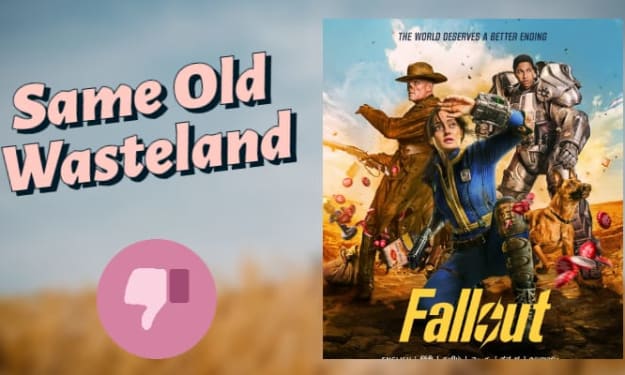Songs of Suffering: A Vital Script
A recommendation of Nolan Barrett Nightingale's potent and necessary script for this day and age

I have a degree in theatre. Did you all know that? I feel like I don’t bring it up enough. For the past four years, I’ve studied and analyzed dramatic literature, mostly for a passing grade. I have also written several plays, and belong to the Dramatists’ Guild and New Play Exchange. As a result, I have read bits and pieces of new work, one such piece being Songs of Suffering: A Torture Play by contemporary playwright Nolan Barrett Nightingale. (That is his real name. Trust me, I’ve checked.) Anyway, the more I think on it, the more I realize Songs of Suffering is a piece born out of generational anxiety, and I want to work through that anxiety a little bit by exploring the themes of the script. Be aware, this article may contain spoilers for the piece, so if you are planning on reading it, you can purchase a PDF from Smith Scripts here.
The first thing you need to know about Nightingale’s dramatic work is that he is a very gritty writer. His characters are often coarse, tortured individuals (pardon the pun) who grit their way through life. This tactic preserves the air of a working-class struggle. With the exception of the Candidate who speaks pristinely and tactfully, Nightingale’s cast of characters speak in a manner that one feels like they should view through a sepia-toned haze under a layer of soot.
The script itself begins with a mock-presidential debate, wherein a law-and-order candidate argues viciously for what is essentially an authoritarian police state, using populist, faux-patriotic parlance to drum up support for the program. Beyond that, Nightingale does a fantastic job of showing the reader the world of the play without feeling the need to explain every aspect of the world. There exists in this world a “terrorist” group, Pax Americana. Two torturers have a sort of back-and-forth going about which method of torture is best, psychological or physical, bickering almost like two secretaries trying to figure out which font is best. It’s a working-class struggle in an unsavory setting, and two characters “just doing their job” do unspeakable things to a working-class “subject” brought in for a “study session.”
This is the genius of Nightingale’s writing. The euphemism in the language is reminiscent of fascist regimes throughout history. The general suspicion with which characters regard one another conjures images from McCarthy’s America. The very tactics the torturers use to conduct their “studies” are hewn straight from handbooks from American agents during the War on Terror. Nightingale makes connections to the past to illustrate that the world of Songs of Suffering is not beyond possibility. And to bring all of this to fruition, midway through the play, Nightingale introduces the character of The Musician, a man in love with music who watches culture die under a censor-happy regime. For playing at the wrong event, The Musician is interrogated, tortured, and shot in the head. Halfway through his monologue, he ties the moment to the past with a few gut-wrenching sentences: “Jazz music certainly did nothing to the Nazis. But fascists hate art for one reason or another. And artists hate fascists as a result. Or maybe it's the other way around?”
I don’t want to give away the final scene, but I will say that it hammers home a vital point. There are many moving pieces that have to line up for a fascist regime to take root in any given nation: nationalism, a culture of fear, a disregard for human life, and most importantly, acceptance of horrific things as the status quo. And that is a generational anxiety that I am seeing across writers in this day and age. So many of these pieces are aligning, and we are a stone’s throw away from a deep dive into a situation that we won’t be able to get out of once we’re in there. Again, you can purchase a PDF of Songs of Suffering: A Torture Play from Smith Scripts. It is highly worth the read. So, what are you waiting for?
About the Creator
Steven Christopher McKnight
Disillusioned twenty-something, future ghost of a drowned hobo, cryptid prowling abandoned operahouses, theatre scholar, prosewright, playwright, aiming to never work again.
Venmo me @MickTheKnight






Comments
There are no comments for this story
Be the first to respond and start the conversation.